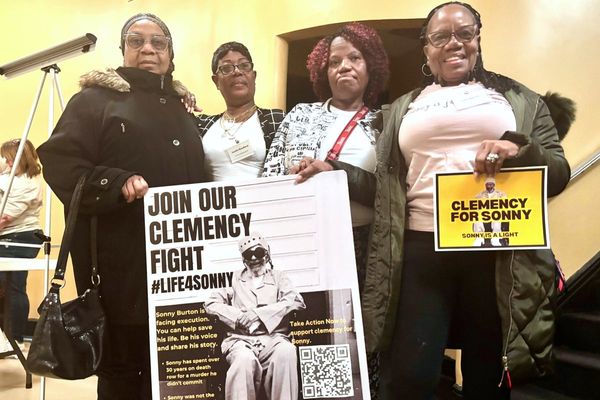Friends and foes, foreign born and homegrown, regularly try to breach the tight security that surrounds an American president. No barrier is too big or technological hindrance too intimidating to stop concerted attempts to access the president and his data. While the risks of getting caught are huge, the rewards for success are immense.
To get the goods _ whether snapping a selfie, scoring state secrets or taking a potshot _ the determined go to extremes to climb fences, get across gates and search for technological backdoors. Most disturbingly, the president sometimes ushers the ill-suited or ill-meaning through the front door and into the inner sanctum.
It's time to close the windows, lock the doors, make new keys and develop new protocols.
Clumsy spycraft and stupid excuses have revealed what could be China's most recent and flagrant attempt to infiltrate the secure systems and locked-down technology surrounding the president of the United States in Palm Beach. If any intrepid intruder manages to insert a snuck-in malware-loaded thumb drive into a computer networked with executive branch, data can then be corrupted and manipulated, making it unreliable. There is both the potential of irreparable system damage and of creating a steady flow of exfiltratable intelligence. In other words, it can gum up the works and also spit out a constant stream information to bad guys.
It's too early to tell what Yujing Zhang's intent and instructions were, but the mere attempt and the fortunate foiling of any possible plot reveals the lengths to which a potential adversary is willing to go. Any success at penetrating computer systems or the planting of mobile phones as listening devices would turn Mar-a-Lago into Mar-a-Leako.
Back in the Obama White House, when a partying pair of second-tier celebrities crashed the administration's first state dinner, the outcry was loud, the consequences immediate and changes implemented quickly. Michaele Salahi, reality star of the "Real Housewives of D.C., created an uproar that led to calls for congressional investigations, attacks on the Secret Service and the firing of White House social secretary Desiree Rogers.
Following the 2016 elections, "The Apprentice" reality TV star has crashed the West Wing and has regularly brought guests to Florida's Trump-run Winter White House. Early in this administration, surprised Mar-a-Lago guests dining on the terrace observed the president conducting high-level meetings and urgent calls. Social-media posts popped up showing Japanese Prime Minister Shinzo Abe dining with POTUS as they considered immediate response options to a just-fired North Korean missile.
Both the Salahi incident and the Abe dinner were early on in their respective administrations, when event and security protocols were still evolving. Glitches and mistakes are only human, and these were quickly corrected. What doesn't change, however, is the high level of interest that America's favor-seekers and adversaries have in penetrating a progressively hardening security shield. Invariably, the weakest security link is the easiest point of entry. Unfortunately, there are currently many such weak links:
First, there can be compromised personnel, individuals like now convicted Lt. Gen. Michael Flynn and Paul Manafort.
Second, there is the misuse of easily hackable technology, like iPhones and email. The president's senior adviser, Ivanka Trump, has conducted government business on her personal unsecured email, for example, and the president's personal iPhones have been hacked by China.
Third, the president has invited into the Oval Office foreigners who are considered high-level security risks, most notably the Russian press and photographers who serve Moscow and accompanied Russian Foreign Minister Sergei Lavrov for an exclusive White House visit in 2017.
Fourth, the disparate levels of security surrounding the Trump properties frequented by the president, where admission onto the grounds can often be dictated by renting a room, hosting an event or attending a party. At Mar-a-Lago, where initiation fees and annual dues have jumped substantially since Trump became president, member access to golf courses and facilities is part of the price. The vetting process is mostly limited to the cost of entry.
Finally, as the public discovers more about the recent Mar-a-Lago breach, it is important to note that the president has the authority to personally deem what is and is not classified. Those around him, however, do not have this authority.
As questions regarding foreign actors and their intelligence-gathering activities gain further attention, it will be equally important to look at the dozens of individuals surrounding the president who were granted security clearances despite "disqualifying issues."
It remains the president's prerogative to share or not share, classify or declassify information. Conceivably _ perhaps likely _ it could partly be his strategy to reveal to adversaries planted misinformation, make accessible dodgy data or allow misleading plans to be intercepted. When it comes to intelligence and psychological operations, it is a time-honored tradition to deceive adversaries by revealing specific secret plans.
Let's hope those working with the president and in the nation's intelligence circles are exploiting the many current security weaknesses to plant fake stories and secrets. Mostly, however, let's expect a tighter ship of state. After all, loose lips do sink ships.







